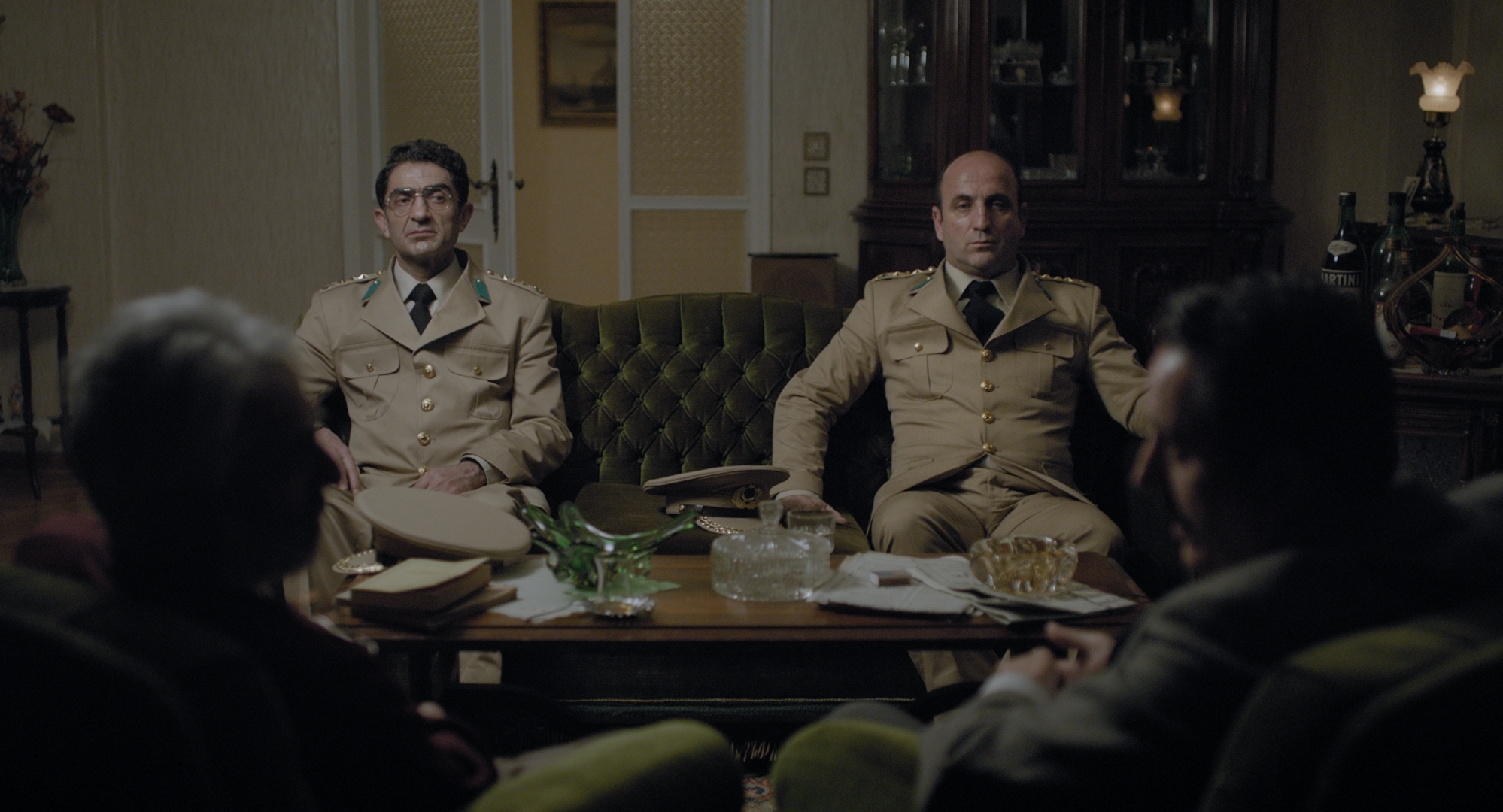Venice Film Review: ‘The Announcement’
By Jay Weissberg
LOS ANGELES (Variety.com) – The incongruously intimate story of a 1963 Turkish army coup attempt allows Mahmut Fazıl Coşkun the scope to take his mordant wit to new heights in his deadly serious yet deeply sardonic third feature, “The Announcement.” Rigidly composed fixed camera shots designed to heighten the atmosphere of entrapment do double duty as a self-reflexive commentary on the nature of characters who follow orders with no thought, while the stationary lens amusingly parallels the deadpan humor. Unquestionably a commentary on the Turkish present as much as the past, yet aiming for an enigmatic quality likely to confound the country’s censorship-happy authorities, “The Announcement” may struggle to find an audience aware of the political situation as well as open to the film’s funny side, but it deserves considerable festival play.
Nighttime in a taxi somewhere in Istanbul: Two stone-faced men are tense passengers as the driver nervously takes them through a roadblock and on toward their destination. The camera’s strictly limited gaze doesn’t allow for extraneous images and adds a heightened level of disorientation as some action is heard off-screen but never seen. Sinasi (Tarhan Karagöz) in the front seat seems to be in charge, but it’s Reha (Ali Seçkiner Alıcı) in the back who blows the cabbie’s brains out when they arrive at the bakery of fellow conspirator Kemal (Murat Kılıç), at first seen only in silhouette from behind.
What they’re doing is still a mystery: Are they mobsters? Hit men? They’re joined by Rifat (Şencan Güleryüz), whose full-throated singing of the North Korean national anthem was a joke in their military unit, and only then do they change out of civvies into the uniforms of army officers. Now it becomes clear what’s happening: The quartet have been instructed by their superiors in Ankara to take over the main Istanbul radio station and announce that a coup has taken place. Something similar will happen in Ankara, and then the army will be out on the streets to ensure calm.
Despite the deadly seriousness of the enterprise, Coşkun introduces comically absurdist elements (the North Korean anthem is but one) and then expertly balances the two moods on a razor-thin edge that’s as dry as the martini the characters talk about. The four officers are driven to the radio station by Murat (Erdem Şenocak), an oblivious schlub glimpsed in the film’s prologue undergoing a medical exam in the hopes of emigrating to West Germany. Murat and many of the other side characters are representative of an entire Turkish population inured to military coups – this is the third in as many years – moving through the night in a kind of emotionless vacuum, too numbed to act on anything outside their immediate responsibilities. Nothing of course goes according to plan as the conspirators, isolated and clueless, try getting their message out to the city.
In both his debut feature, “Wrong Rosary,” and then “Yozgat Blues,” Coşkun played with minimalist camera setups and a certain straight-faced charm in dramas that explored unusual relationships. The first made Istanbul a character in its own right, while the second reduced the appearance of the outside world. Here with “The Announcement” the shift is taken to an extreme, with practically no exterior shots, yet the presence of indefinite external forces remains a constant, significantly contributing to an atmosphere of uncertainty. Many commentators will fall over themselves to make comparisons to Recep Tayyip Erdoğan’s Turkey, but Coşkun and co-writer Ercan Kesal (he worked with Nuri Bilge Ceylan on two scripts), aim for something far less specific, laying bare a more general attitude toward power and the survival mechanisms in place when the general population become pawns in a furtive game.
There are moments when the film feels almost like a cross between Corneliu Porumboiu and the Pablo Larrain of “Post Mortem,” but there’s nothing derivative in Coşkun’s highly controlled vision. Cinematographer Krum Rodriguez (“Viktoria”) keeps the essentials in the preternaturally calm frame while the terrific sound design calls attention to things happening just outside. Songs are used with delicious irony.

